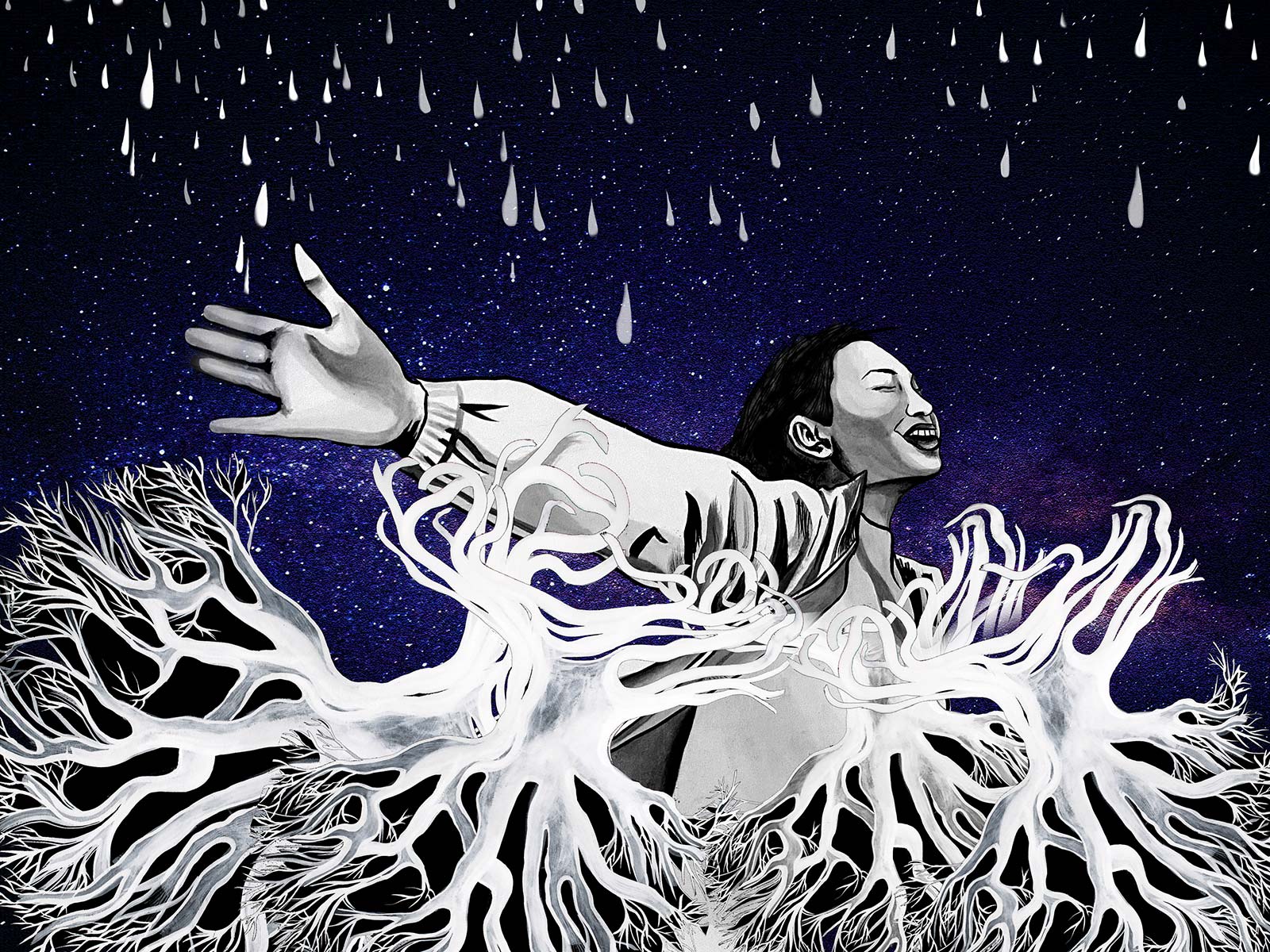In Ayurveda, Fall is the season of wind – a season of transition and, at times, turbulence that can leave us feeling ungrounded and pulled in too many directions, or feeling anxious or scared. It helps me sometimes to remind myself of these natural rhythms of the seasons and elements when I get consumed by fear or worry about what’s happening in our world, in my community, and my family. Thanks to the science of Ayurveda, I can adopt practices to help soothe my anxiety and ground me during this season that can stir so much up. But the catch is that I need to practice. I need to participate in creating new behaviors that will help me heal. Healing involves learning to live with, and not in resistance to, the rhythms of nature and the world I am a part of.
Practice is a foundation of the work we do at Center for Whole Communities. We can be inspired to create change in our hearts and minds, but without practices that help us cultivate new behaviors and new structures, that change will not last. I’ve been reflecting on the practices of forgiveness and gratitude during this season of Thanksgiving.
Perhaps instead of resisting the nature of this season, we can throw everything up for consideration, let the winds make us feel unsettled about a history of a nation that should be settling to no one. Perhaps healing might come from a willingness to tell the truth, a willingness to learn, to reconcile, and to forgive. I recently learned that the U.S. Government issued a formal “apology” to Native Americans in 2009. It was hidden deep within a military spending bill, full of all kinds of legal language to avoid admitting to anything that might trigger a lawsuit, and there was no ceremony or attention given it. It was and is as if it didn’t even happen. I learned about this “apology” when I was fortunate enough to hear an interview with a Lakota poet, Layli Long Soldier. Layli is the author of Whereas, a book which mirrors the 20 “Whereas” clauses of the Senate Joint Resolution buried within the 2009 spending bill.
“Whereas like a bird darting from an oncoming semi my mind races to the Apology’s assertion ‘While the establishment of permanent European settlements in North America did stir conflict with nearby Indian tribes, peaceful and mutually beneficial interactions also took place’…”
Whereas I could’ve but didn’t broach the subject of “genocide” the absence of this term from the Apology and its rephrasing as “conflict” for example…”
Read more here.
Ultimately, works like Whereas offer us a glimpse into thinking about the freedom and healing possible through a practice of truth, reconciliation, apology, and forgiveness.
When I pause to allow myself to be grateful, to recognize the support that is always around me – the ways in which this planet cares for me and feeds me, the ways my ancestors love me and have dreamed for me, the ways in which my community supports and encourages me – I feel cared for and more capable to care for others. I can begin to understand what reciprocity means.
Reciprocity offers me a worldview that allows me to see myself (and all humans) as part of that natural rhythm of giving and receiving. It helps me to feel as though I belong here. It helps me to love myself. But again – it’s a practice. I believe that if we are going to figure out how to heal ourselves and the injustices we see happening around us, we need to start seeing ourselves as part of the solution.
Thanksgiving is a holiday that, if nothing else, reminds us of the importance of practicing gratitude. In a country as materialistic and fast paced as ours is, how wonderful to have a holiday to remind us to give thanks. If we could turn this from a single day of remembrance into an actual practice of gratitude – imagine what might be possible?
What does this time mean for you? We encourage you to reflect on your own experiences of this season and please, share them with us. This #givingtuesday we give thanks for our community of support, for the relationships that sustain us as human beings, and sustain our work for justice and the environment.
Your support will make a difference, so please give generously today, to our work and to the other nonprofits whose work you admire and depend on. We all need your participation. Thank you for considering a gift to Center for Whole Communities this #givingtuesday.
CWC Senior Fellow, Kavitha Rao, is a mother, a facilitator, a yoga teacher, a consultant, and an organizer. She has worked with grassroots organizations around the world and is humbled by the immense commitment and vision she has witnessed from people unwilling to accept that the violence, injustice, and inequity that may surround them is the only way things have to be. Read her full bio here.
